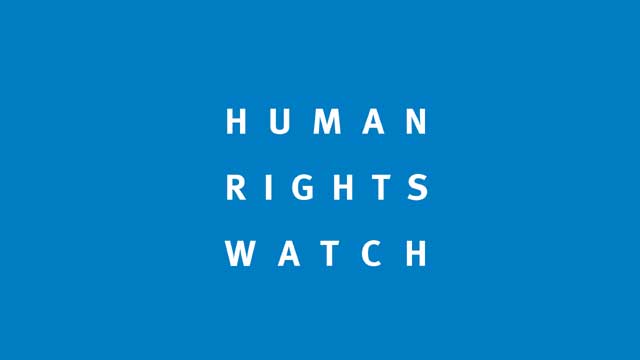The Human Rights Watch has said that attacks on opposition activists and ‘mass arrests’ have undermined the conditions for a free and fair election.
The New York-based human rights organisation in a statement on Wednesday said that the police indiscriminately fired rubber bullets, teargas, and water cannons, and beat the opposition supporters during protests in late July.
It said that in the days leading up to a major demonstration on July 29, the authorities arrested over 800 leaders and activists of the main opposition Bangladesh Nationalist Party, ‘in what appears to be a systematic effort to target and detain political opponents.’
It said, ‘The election-related abuses occurred during a visit by the European Union’s special representative for human rights, Eamon Gilmore, and at the end of the EU’s exploratory mission to assess the conditions for full monitoring during the January 2024 national election.’
The United States government has warned that it will restrict visas to any Bangladeshi individual who undermines the democratic election process in Bangladesh, the statement stated.
‘International observers should view the brutal crackdown on the political opposition as an alarm that elections in Bangladesh will not be democratic,’ said Meenakshi Ganguly, deputy Asia director at the HRW.
‘The Bangladesh government is making international pledges to hold free and fair elections even though it unleashes autocratic and abusive attacks that clearly contradict those claims,’ she said.
The statement mentioned that BNP leaders said that at least 100 of their supporters were injured during the protests.
Videos of clashes between the police and the opposition supporters show that security forces are using excessive force by kicking and hitting people who appear to be unarmed, the statement said.
According to the police, at least 32 officers were also injured after the opposition protesters threw stones and attacked police vehicles, it said.
The police said that they had not granted the BNP permission to hold a rally on July 29.
However, law enforcement officers are required to respect the right to freedom of assembly and human rights standards on use of force when dispersing demonstrations, regardless of whether the demonstrations were legally sanctioned, the statement added.
The United Nations Basic Principles on the Use of Force and Firearms by Law Enforcement Officials require the police to use nonviolent means, such as demands to vacate an area, before resorting to force and firearms, it said.
‘The UN guidance on the use of less-lethal weapons, say that kinetic impact projectiles such as rubber bullets should only be used as a last resort and ‘with a view to addressing an imminent threat of injury to either a law enforcement official or a member of the public,’ it said.
Water cannons should only be used in situations of serious public disorder where there is a significant likelihood of loss of life, serious injury, or widespread destruction of property and should not be used at short range, it said.
The authorities had also filed cases against over 1,500 named opposition leaders and activists and over 15,000 unnamed people in the weeks leading up to the BNP rally on July 29.
‘The ruling Awami League government is acutely aware of the heightened international scrutiny of its rights record,’ Ganguly said, adding that incapacitating the opposition through mass arbitrary arrests and violent crackdowns will not fool anyone into thinking that Bangladesh elections are free and fair.





